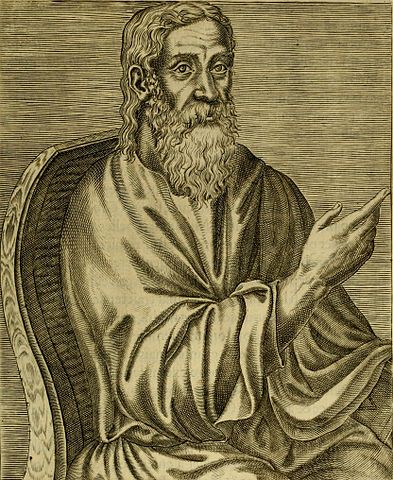An Excess of Infamy

The book that I am blogging a couple paragraphs at a time is Diogenes of Sinope by Farrand Sayre. It is in the Public Domain. Sayre is not an unqualified supporter of the Cynics, as can be seen from these two paragraphs.
The Cynic freedom of speech extended to the character of language used. Philodemus says, "It pleases these dreadful men to adopt the life of dogs, and they make open and unrestrained use of all kinds of words" (On the Stoics). Clement of Alexandria says that a tragedy attributed to Diogenes was expressed in foul language (Stromata 2, 20). Julian writes; "Now as for the tragedies ascribed to Diogenes, which are, and are admitted to be, the composition of some Cynic ... what reader of these would not abhor them, and find in them an excess of infamy" (7, 210; cf. Apuleius, Apologia 9). "Melanthius, as it is said, being asked his opinion concerning a tragedy of Diogenes, made answer that the words intercepted his view of it" (Plutarch, Concerning Hearing).
Epictetus describes the ordinary conception of the Cynics of his time; "I will take a little bag and a staff and I will go about and begin to beg and to abuse those whom I meet; and if I see any man plucking the hair out of his body, I will rebuke him, or if he has dressed his hair, or if he walks about in purple… Their (Cynics') characteristic is the little wallet and staff and great jaws, the devouring all that you give them or storing it up or the abusing unseasonably all whom they meet" (Arrian 3, 22, 10-50). Lucian says of the Cynics, "They spoil the wine with unwelcome and untimely disquisitions" (The Fisher). Seneca says; "One must not talk to a man unless he is willing to listen. That is why it is often doubted whether Diogenes and the other Cynics, who employed an undiscriminating freedom of speech, ought to have pursued such a plan" (Epist. Mor. 19, 1).
Image: Clement of Alexandria by André Thévet, 16th Century
Public Domain via Wikimedia Commons
Other Posts in the Diogenes of Sinope series
The Cynics Referred to the Habits of Animals
Slump towards Animalism
Attitude of the Cynics Towards Pleasure
Happiness Did Not Exclude Pleasure
Diogenes as Hedonist
Short Road to Happiness or Short Cut to Virtue?
Despising Pleasure is Pleasurable
What is Virtue for a Cynic: Cats for Thievery
What is Virtue for a Cynic: Promiscuous Sexual Intercourse
The Cynic Sought Freedom
Labor Did Not Enter into the Cynic Scheme of Life
The Easy Life of the Cynic
The Cynic was Fond of Comparing Himself with Kings and Emperors
The Object of the Cynic was Happiness
I Am a Citizen of the World
Freedom of Speech is the Most Beautiful Thing in the World
I Speak Plainly as an Interpreter of Apathy
A Man Should Live Contented with Present Things
@reported has voted on behalf of @minnowpond. If you would like to recieve upvotes from minnowponds team on all your posts, simply FOLLOW @minnowpond.
Why is it in your thoughts that Zeus really hung permetheos to have his liver eaten daily only to have it grow back the next day. Was it for pain punishment or revelation my thoughts do wonder upon this , as well, did he really know ...
Great post very informative
Thank you kindly